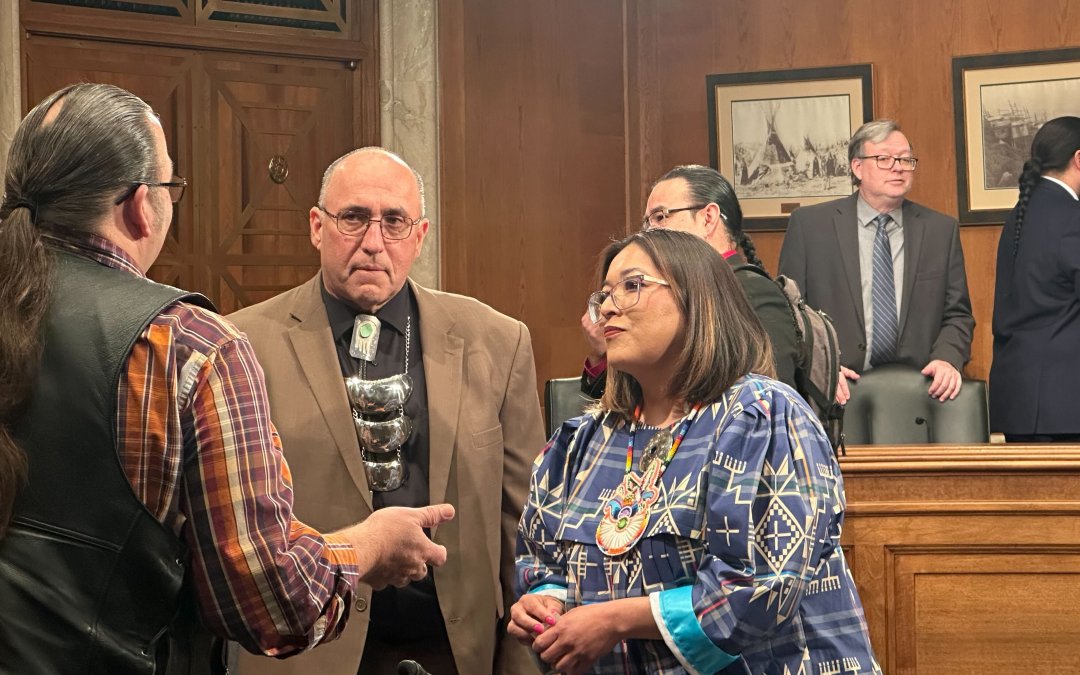WASHINGTON – Lawmakers met Thursday to discuss a series of legislation meant to correct injustices facing Native Americans, some of which have been overlooked for centuries.
Proposals to help provide tribes commercial independence, improved health care services and land reclamation were all on the table at the Senate Committee on Indian Affairs hearing. But access to clean water, a basic need that most Americans do not have to worry about, is a particularly pressing struggle for Indian Country.
Nearly one out of every two tribal homes lacks access to clean water or proper sanitation, which equates to roughly 662,000 people. For some, the situation is even more dire. People of the Navajo Nation are 67 times more likely than other Americans to lack access to running water or indoor plumbing.
“This is 2024. To know that statistic is one so many are living with is really very troubling,” said Sen. Lisa Murkowski (R-Alaska).
Previous legislation, including the 2021 Bipartisan Infrastructure Law, was a start to combating the crisis. The law is providing billions of dollars for the construction and repair of water sanitation facilities on Native lands, but tribes around the country still face challenges.
Manuel Heart, chairman of the Ute Mountain Ute Tribe, testified that his tribe lacks the skills and time it takes to successfully apply for and obtain grants. It also doesn’t have the training and staff to adequately upkeep water facilities.
He added that Native municipalities cannot rely on revenue from property taxes to fund operation and maintenance costs because tribal land is owned by the federal government.
One proposed bill, Tribal Access to Clean Water Act of 2023, aims to fill the gaps. It would provide roughly $1.5 billion through 2028 for technical assistance to create self-sustaining facilities, like obtaining grants and construction contracts and ensuring investments are maintained.
The U.S. has long promised sovereignty to American Indians. In 1832, Supreme Court Chief Justice John Marshall said such groups are “distinct, independent political communities retaining their original natural rights.”
“Without reliable clean drinking water, the Ute Mountain Ute people cannot maintain their sovereign right to self sufficiency and self government,” Heart told lawmakers. “I am here today to remind the United States of its obligations once again.”
The dearth of clean water is so normal in the White Mesa Ute community, Heart explained, that it is customary to bring bottled water as a greeting gift.
“No family in this country should have to raise their children without clean water. No member of a tribe should have to accept circumstances none of us would accept for our own family,” said Sen. Michael Bennet (D-Colo.). “This hardship is particularly egregious because it is a direct consequence of the federal government’s failure to honor promises and treaties made to tribes across this land.”


